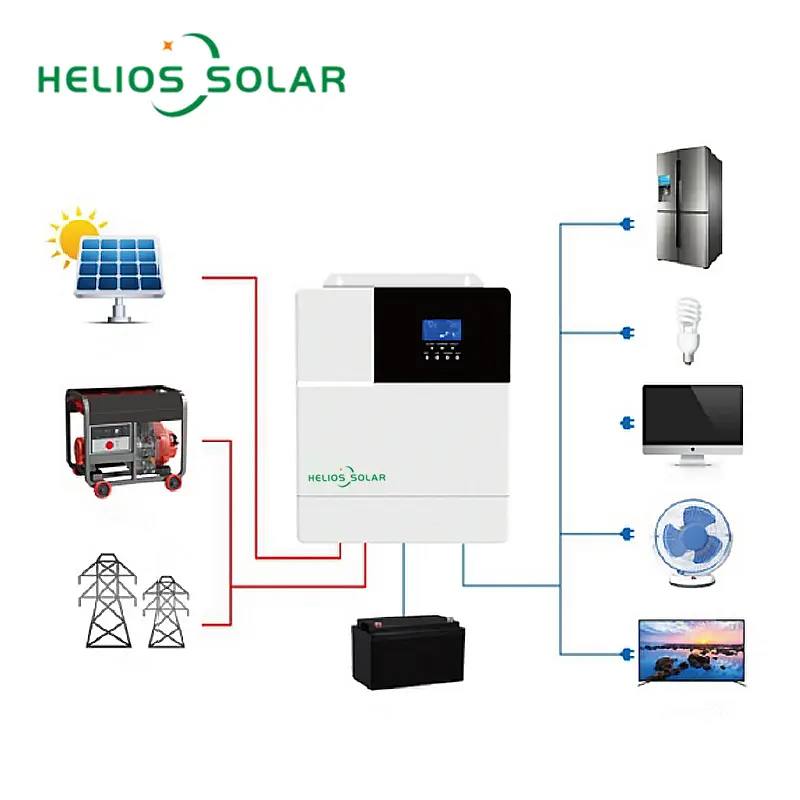As the world becomes more aware of energy consumption, alternative energy solutions such as off-grid and hybrid inverters are growing in popularity. These inverters play a vital role in converting direct current (DC) generated by renewable energy sources such as solar panels or wind turbines into usable alternating current (AC) to meet our daily needs. However, it’s crucial to understand the differences between off-grid and hybrid inverters when deciding which system is best for your power needs.
Off-grid inverter
As the name suggests, off-grid inverters are designed to work independently of the grid. They are often used in remote areas where grid connections are limited or non-existent. These inverters are responsible for managing the excess energy generated by renewable energy sources and storing it in the battery bank for later use.
The distinguishing feature of off-grid inverters is their ability to operate without constant power from the grid. They convert direct current generated by solar panels or wind turbines into alternating current that can be used directly by household appliances or stored in batteries. Off-grid inverters usually have a built-in charger that can recharge the battery bank when sufficient energy is available.
Hybrid inverter
Hybrid inverters, on the other hand, offer the best of both worlds by combining off-grid and on-grid capabilities. They function similarly to off-grid inverters but have the added advantage of being able to connect to the grid. This feature provides the flexibility to draw power from the grid during periods of high demand or when renewable energy cannot meet load requirements.
In a hybrid system, the remaining energy generated by renewable energy sources is stored in the battery, just like in an off-grid system. However, when the battery is low or additional power is needed, the hybrid inverter intelligently switches to draw energy from the grid. Additionally, if there is a surplus of renewable energy, it can effectively be sold back to the grid, allowing homeowners to earn credits.
Main differences
1. Operation: Off-grid inverters work independently of the grid and rely entirely on renewable energy and batteries. Hybrid inverters, on the other hand, can either operate off-grid or be connected to the grid when necessary.
2. Grid Connectivity: Off-grid inverters are not connected to the grid, while hybrid inverters have the ability to seamlessly switch between grid power and renewable energy.
3. Flexibility: Hybrid inverters provide greater flexibility by allowing energy storage, grid connection, and the ability to sell excess energy back to the grid.
In conclusion
Choosing an off-grid or hybrid inverter depends on your specific energy needs and location. Off-grid inverters are ideal for remote areas with limited or no grid connection, ensuring self-sustainable development. Hybrid inverters, on the other hand, facilitate renewable energy use and grid connection during periods of insufficient renewable energy generation.
Before investing in an inverter system, consult a professional to assess your power needs and understand local regulations regarding grid connection and renewable energy incentives. Understanding the differences between off-grid and hybrid inverters will help you choose the right solution to efficiently meet your power needs while promoting sustainability.
If you are interested in off-grid inverters, welcome to contact Radiance to read more.
Post time: Sep-26-2023


